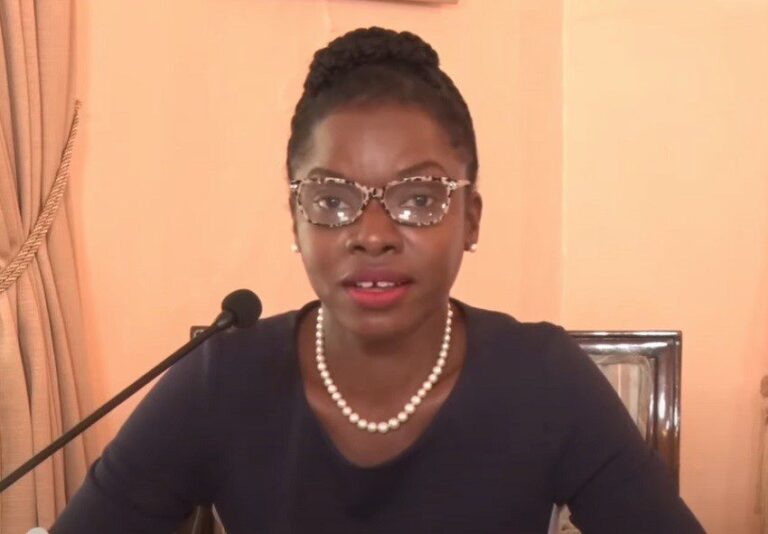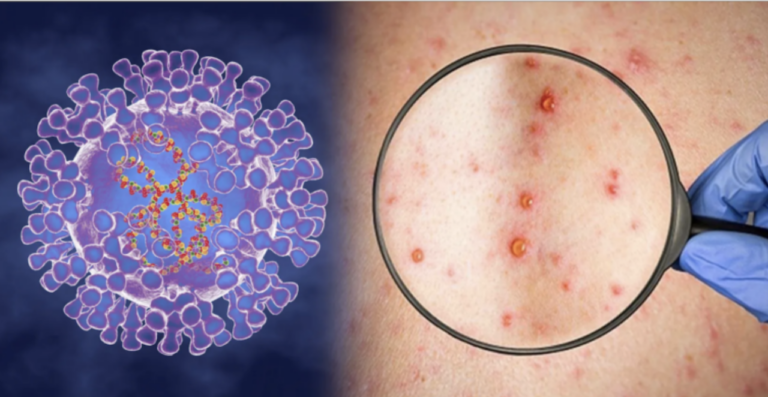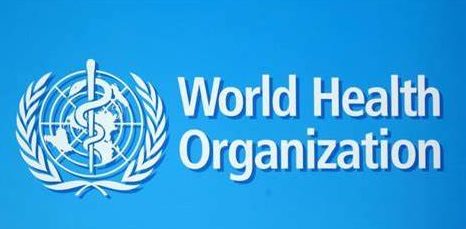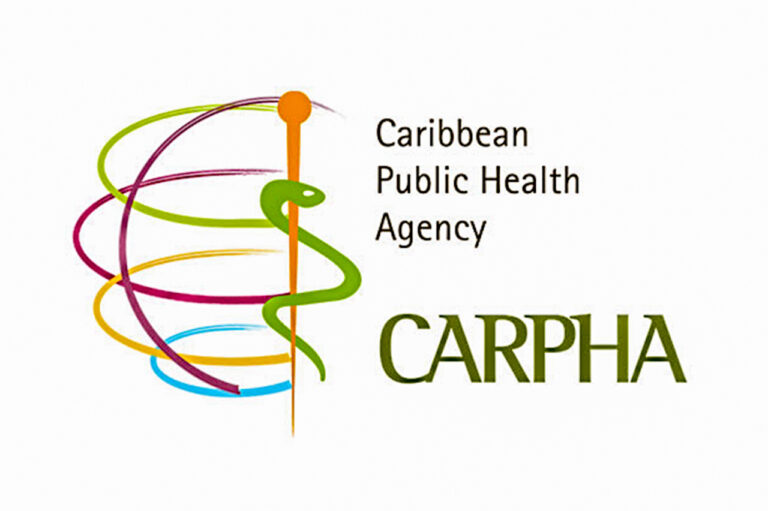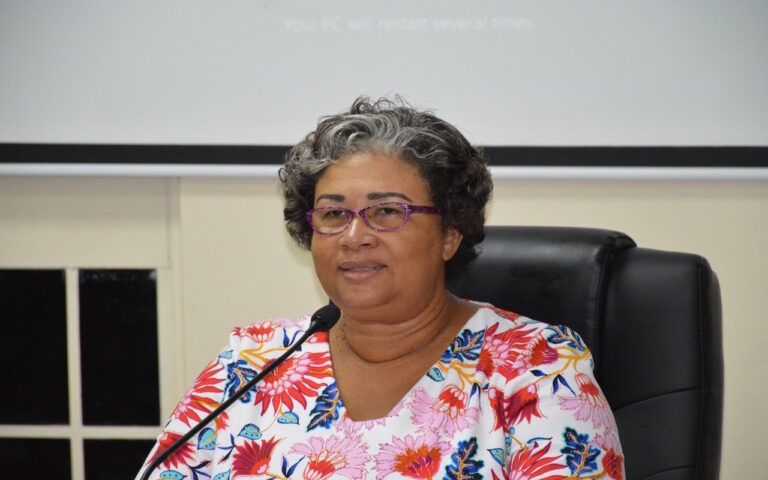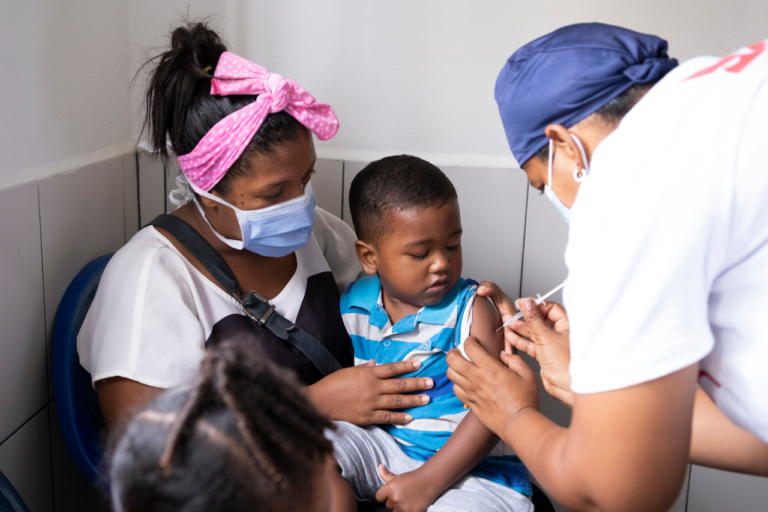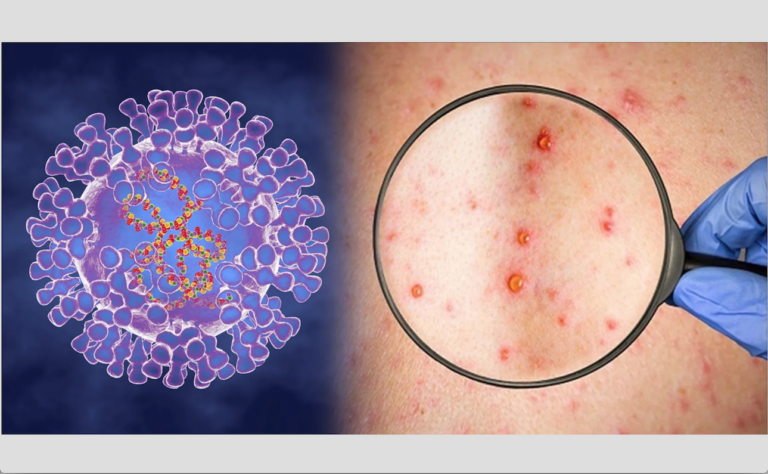Health Archives - Barbados Today
School canteens to provide healthier food options
Stakeholders are taking steps to remove unhealthy food options from the school canteens.
Chief Education Officer Dr Ramona Archer-Bradshaw said with the new School Nutrition Policy approved by Cabinet, they are going all out to ensure that local but healthy foods will be used to feed the nation’s youth.
“I recommend that we rely on foods that are grown locally and regionally in the preparation of lunches and snacks for our school-aged children. We need to think about how we can prepare local foods such as breadfruit, potatoes, eddoes, yams and green bananas so that they become the foods of choice for our young people,” the Chief Education officer said.
She was speaking at a virtual Vendors Training Session put on by the Childhood Obesity Prevention Programme of the Heart & Stroke Foundation, on Saturday.
“It is true that our children are generally not accustomed to these foods so we have to think about strategies and dishes that are prepared with these ground provisions that are attractive and tasty. Rather than the pasta and the English potato dishes with which they are very comfortable,” she said.
Archer-Bradshaw also raised the issue of high salt, fat and sugar intake, which she said can lead to children being overweight and be the main cause of cardiovascular diseases.
Chairman of the Barbados Childhood Obesity Prevention Coalition Dr Kia Lewis opened her presentation by asking,”Are we setting our children up for success?”
“I want to say that the decisions that we are making for our children now is going to affect their health in adulthood and collectively it is going to affect the future health of our nation,” she pointed out.
“The health decisions that we are teaching our children in their formative years, that often lay the foundation for the health and practices that they are going to continue into adulthood and they are going to pass it onto their children.This is very much generational,” Dr Lewis said.
In May 2022, the Cabinet of Barbados approved the School Nutrition Policy and the Ministry of Education will be implementing strategies in the new school year to make the school environment a healthier one. (MR)
The post School canteens to provide healthier food options appeared first on Barbados Today.
2 years 10 months ago
A Slider, Health, Local News
Health – Demerara Waves Online News- Guyana
GECOM Commissioner Bibi Shadick dies
Guyana Elections Commissioner, Bibi Shadick died on Saturday at her residence in Georgetown, sources said. The sources said Ms Shadick, an Attorney-at-Law,suffered from pulmonary fibrosis. She was 76 years. Her colleague Commissioner, Sase Gunraj was too shocked to react to the news of her passing. A family member told Demerara Waves Online News that about ...
Guyana Elections Commissioner, Bibi Shadick died on Saturday at her residence in Georgetown, sources said. The sources said Ms Shadick, an Attorney-at-Law,suffered from pulmonary fibrosis. She was 76 years. Her colleague Commissioner, Sase Gunraj was too shocked to react to the news of her passing. A family member told Demerara Waves Online News that about ...
2 years 10 months ago
Health Archives - Barbados Today
WHO plans to rename monkeypox over stigmatization concerns
SOURCE: AP — The World Health Organization says it’s holding an open forum to rename the disease monkeypox, after some critics raised concerns the name could be derogatory or have racist connotations.
In a statement Friday, the UN health agency said it has also renamed two families, or clades, of the virus, using Roman numerals instead of geographic areas, to avoid stigmatisation. The version of the disease formerly known as the Congo Basin will now be known as Clade one or I and the West Africa clade will be known as Clade two or II.
WHO said the decision was made following a meeting of scientists this week and in line with current best practices for naming diseases, which aims to “avoid causing offense to any cultural, social, national, regional, professional, or ethnic groups, and minimize any negative impact on trade, travel, tourism or animal welfare.”
Numerous other diseases, including Japanese encephalitis, Marburg virus, Spanish influenza and Middle Eastern Respiratory Syndrome have been named after the geographic areas where they first arose or were identified. WHO has not publicly suggested changing any of those names.
Monkeypox was first named in 1958 when research monkeys in Denmark were observed to have a “pox-like” disease, although they are not thought to be the animal reservoir.
WHO said it was also opening a way for the public to suggest new names for monkeypox, but did not say when any new name would be announced.
To date, there have been more than 31,000 cases of monkeypox identified globally since May, with the majority of those beyond Africa. Monkeypox has been endemic in parts of central and west Africa for decades and was not known to trigger large outbreaks beyond the continent until May.
WHO declared the global spread of monkeypox to be an international emergency in July and the US declared its own epidemic to be a national emergency earlier this month.
Outside of Africa, 98 percent of cases are in men who have sex with men. With only a limited global supply of vaccines, authorities are racing to stop monkeypox before it becomes entrenched as a new disease.
The post WHO plans to rename monkeypox over stigmatization concerns appeared first on Barbados Today.
2 years 10 months ago
A Slider, Health, World
Health Archives - Barbados Today
Patient cleared
Barbados’ only confirmed case of Monkeypox, a Barbadian man in his twenties, has fully recovered, the Ministry of Health and Wellness said on Monday.
Barbados’ only confirmed case of Monkeypox, a Barbadian man in his twenties, has fully recovered, the Ministry of Health and Wellness said on Monday.
The ministry also disclosed that there have not been any associated cases with this index case which was reported three weeks ago.
In a statement on July 16, Minister of Health and Wellness Ian Gooding-Edghill said the man, who had travelled, had sought medical attention at the Winston Scott Polyclinic with symptoms of a progressive rash, body pains and fever within hours of his arrival in Barbados.
The Ministry advised persons who have a travel history and who are experiencing any unexplained rash, swelling of the lymph nodes or who have been in contact with persons with a rash to seek medical attention at their nearest polyclinic.
The ministry disclosed surveillance at the ports of entry has been enhanced as it continues to be on alert for Monkeypox.
The post Patient cleared appeared first on Barbados Today.
2 years 11 months ago
A Slider, Health, Local News
Health Archives - Barbados Today
Ministry of Health and Wellness statement on change in expiry date of Pfizer Vaccine
Chief Medical Officer, Dr. The Most Honourable Kenneth George, is informing the public that Pfizer BioNTech, authorised by the Food and Drug Administration, has extended the recommended expiration dates of COVID-19 Vaccines from nine months to one year from the date of manufacture.
This means that the Pfizer COVID-19 vaccines available in Barbados with the manufacture date of November 2021 have a 12-month shelf life until October 31,
2022.
The Chief Medical Officer assures the public that the Pfizer COVID Vaccines administered remain safe and effective and still offer an opportunity for controlling the spread of COVID-19. He states that the Pfizer vaccines for COVID-19 will therefore continue to be available until the end of October 2022. The Ministry of Health and Wellness will continue to source COVID-19 vaccines on the open market.
The supporting documentation regarding this change in expiry date is entitled “Expiry Information for All Three Vaccine Presentations” and published on April 26, 2022. It may be found at https://www.cvdvaccine-us.com/images/pdf/Expiry_Doc.pdf.
The Ministry of Health and Wellness, in the best interest of the public, will continue to provide updates on important matters particularly as it relates to the COVID-19 pandemic.
The post Ministry of Health and Wellness statement on change in expiry date of Pfizer Vaccine appeared first on Barbados Today.
2 years 11 months ago
A Slider, Health, Local News
Health Archives - Barbados Today
WORLD – WHO calls for countries to work together to combat Monkeypox
The World Health Organisation’s (WHO) Assistant Director-General for Emergencies, Dr Ibrahima Soce Fall, says countries need to work more together to stop the rapidly spreading outbreak of Monkeypox, “no matter the nationality, skin colour or religion of the affected population”.
“We have been working on Monkeypox in Africa for several years, but nobody was interested.
“What is unfortunately called a ‘neglected tropical diseases.’ We worked a lot on that with very few resources and only when the northern countries became affected by this disease the world reacted. It was the same with the Zika virus and we have to stop this discrimination.”
On July 23, the WHO declared the spread of the virus to be a public health emergency of international concern – the organisation’s highest level of alert. Through this, WHO aims to enhance coordination, cooperation of countries and all stakeholders, as well as global solidarity.
According to Dr Fall, “the world must be involved to protect these populations, no matter their nationality, their skin colour, or their religion, etc. I think it is extremely important and now that more than 70 countries are affected in the world, everyone is getting active”.
Until this year, the virus which causes Monkeypox rarely spread outside Africa where it is endemic. But reports of a handful of cases in Britain in early May signalled that the outbreak had moved into Europe.
“It is important, and we have already been doing so, to accelerate the research and development agenda on Monkeypox so that the most affected African countries can have the resources to prevent and fight against Monkeypox,” said Dr Fall.
A vaccine was approved in 2019 for the prevention of Monkeypox, however availability remains limited at the moment.
“We have had many cases in the Democratic Republic of Congo, Nigeria, Central African Republic, Cameroon, and some sporadic cases in countries such as Ghana, Benin, etcetera,” Dr Fall said.
“I think it is time that the world invests so that these populations that are living in rural areas and in forest areas, can be protected.
” . . . If we only treat what is happening in Europe and America, we will only treat the symptoms of Monkeypox, but not the real disease. It is important that the world gets mobilised to this kind of disease.”
SOURCE: UNifeed
The post WORLD – WHO calls for countries to work together to combat Monkeypox appeared first on Barbados Today.
2 years 11 months ago
A Slider, Health, Monkeypox, World
Health – Demerara Waves Online News- Guyana
New contract model places greater burden on Guyanese contractors, as works begin on new UK-funded paediatric, maternal hospital
As the sod was turned to construct a €$149million (more than US$150 million) paediatric and maternal hospital, the Guyana government on Sunday announced that contractors would have to abide by new internationally recognised contract terms that would see them bearing the bulk of the responsibilities for the design and build infrastructure model. The hospital, which ...
As the sod was turned to construct a €$149million (more than US$150 million) paediatric and maternal hospital, the Guyana government on Sunday announced that contractors would have to abide by new internationally recognised contract terms that would see them bearing the bulk of the responsibilities for the design and build infrastructure model. The hospital, which ...
2 years 11 months ago
Health – Demerara Waves Online News- Guyana
Guyana gets drugs to treat potentially cancer-causing hepatitis C
An estimated 600 Guyanese, who are infected with hepatitis C, would no longer risk developing liver cirrhosis or cancer as the disease could now be treated, health officials said. “They would now be able to access care which means that in say 10, 15 years from now, once they are accessing care, we are going ...
An estimated 600 Guyanese, who are infected with hepatitis C, would no longer risk developing liver cirrhosis or cancer as the disease could now be treated, health officials said. “They would now be able to access care which means that in say 10, 15 years from now, once they are accessing care, we are going ...
2 years 11 months ago
Health Archives - Barbados Today
CARPHA sounds alarm on new COVID-19 sub-variants and polio
The region’s main public health agency has put residents of Barbados and other Caribbean states on alert for two new highly-contagious COVID-19 variants and the reemergence of polio in the Americas.
The Caribbean Public Health Agency (CARPHA) also predicted that the BA.5 variant will cause a massive increase in COVID-19 cases across the region.
In an interview with CARPHA’s Communications Manager Carlon Kirton, following the World Health Organisation’s recent declaration of Monkeypox as a public health emergency of international concern, the agency’s Executive Director Dr Joy St John expressed grave concern about these developments. She cautioned that the situation could worsen because of vaccine hesitancy and an anti-vax campaign being waged in and outside of the region.
Dr St John said CARPHA has expanded its range of tests and increased testing for the sub-variant of the Omicron variant.
“It’s mainly BA.5, some BA.4. BA.5 is pushing everything else. But we are also seeing BE.1 and BF.1, which act just like BA.5 and spread very quickly,” she reported.
“We will continue to monitor what’s out there in the world, what’s of concern in terms of global transmission so that we would be able to keep on top of the detection tests like what we are doing for Monkeypox and the gene sequencing like what we are doing for COVID-19.”
The public health executive singled out the BA.5 sub-variant, cautioning that it is expected to be responsible for a jump in COVID-19 infections in the Caribbean.
“The need for PCR tests has reduced considerably as we have gone into this new phase of the pandemic. However, the need for gene sequencing has not. The [CARPHA] member states still want to know about gene sequencing because they need to keep on top of what is circulating and how they need to change management.
“For example, now that we have BA.5 circulating, the member states are aware they are going to get lots and lots and lots of cases. There may not be that many that are severe, and there may not be that many that go on to death, but they know there is going to be an increase in cases, so they are on the alert for that,” she said.
Meantime, the CARPHA boss cautioned that the disabling disease polio, which had been eliminated from the Americas more than 30 years ago, could resurface in the Caribbean.
The first case in this hemisphere in the last three decades was reported on July 21 in a young unvaccinated man in New York City. Health officials said he was infected by a strain related to the live oral polio vaccine, which is used in some parts of the world but has not been used in the US since 2000.
“I must confess that although polio has not been declared a public health emergency of international concern, because we are only looking at one case, it is a cause for concern for CARPHA,” Dr St John said.
“First of all, this region of the Americas eradicated polio decades ago. So, for us to see a new case, even though it is one, is of concern to me.”
She said this was particularly worrying because of an anti-vax campaign that surfaced during the COVID-19 pandemic and was affecting other immunisation efforts.
“Apart from the fact that there was an anti-vax sentiment outside of the Caribbean before COVID-19, since COVID-19 there has been an increase in anti-vaccination sentiments. Vaccine hesitancy is something that we are dealing with even for the pandemic. And so, our percentage coverage of immunisation for polio and other vaccine-preventable diseases has not been as good as it should be,” the senior public health official said.
Addressing the fallout from the anti-vax movement, she said it has dealt a devastating blow to the region’s vaccine uptake efforts.
“Vaccine hesitancy, anti-vax sentiment, and a serious campaign which is being waged through social media has definitely impacted the uptake of COVID-19 vaccines and has already started to impact the usual vaccination programmes,” Dr St John said.
“There are stories of persons who not only said they were not getting the COVID-19 vaccines, but they stopped their children from getting it and they stopped their elderly relatives, so it is very disturbing from that perspective. But once that kind of sentiment raises itself, it is going to impact on regular vaccination programmes,” she maintained.
Meantime, addressing the Monkeypox virus, the top CARPHA official noted that people are now presenting with new symptoms.
“The way in which this Monkeypox infection is showing up is different. People are speaking about really severe lesions in strange places. People are talking about the swelling of lymph nodes so that they protrude through the skin, even two inches out from where they normally would be. There are even reports of people who could not walk because their lymph nodes were so inflamed. So the way in which Monkeypox in this outbreak in non-endemic countries is exhibiting means people need to pay attention and people need to ensure they are not infected, because they are people who are infected and they are travelling,” Dr St John pointed out.
She added that while there is a vaccination for Monkeypox, it may be out of the reach of small developing countries such as Barbados, not only because the cost is prohibitive but also because it is in short supply.
(emmanueljoseph@barbadostoday.bb)
The post CARPHA sounds alarm on new COVID-19 sub-variants and polio appeared first on Barbados Today.
2 years 11 months ago
A Slider, Health, Local News
Health Archives - Barbados Today
UN health agency declares monkeypox a global emergency
SOURCE: AP — The World Health Organization said the expanding monkeypox outbreak in more than 70 countries is an “extraordinary” situation that now qualifies as a global emergency, a declaration Saturday that could spur further investment in treating the once-rare disease and worsen the scramble for scarce vaccines.
WHO Director-General Tedros Adhanom Ghebreyesus made the decision to issue the declaration despite a lack of consensus among members of WHO’s emergency committee. It was the first time the chief of the U.N. health agency has taken such an action.
“In short, we have an outbreak that has spread around the world rapidly through new modes of transmission about which we understand too little and which meets the criteria in the international health regulations,” Tedros said.
“I know this has not been an easy or straightforward process and that there are divergent views among the members” of the committee, he added.
Although monkeypox has been established in parts of central and west Africa for decades, it was not known to spark large outbreaks beyond the continent or to spread widely among people until May, when authorities detected dozens of epidemics in Europe, North America and elsewhere.
Declaring a global emergency means the monkeypox outbreak is an “extraordinary event” that could spill over into more countries and requires a coordinated global response. WHO previously declared emergencies for public health crises such as the COVID-19 pandemic, the 2014 West African Ebola outbreak, the Zika virus in Latin America in 2016 and the ongoing effort to eradicate polio.
The emergency declaration mostly serves as a plea to draw more global resources and attention to an outbreak. Past announcements had mixed impact, given that the U.N. health agency is largely powerless in getting countries to act.
Last month, WHO’s expert committee said the worldwide monkeypox outbreak did not yet amount to an international emergency, but the panel convened this week to reevaluate the situation.
According to the U.S. Centers for Disease Control and Prevention, more than 16,000 cases of monkeypox have been reported in 74 countries since about May. To date, monkeypox deaths have only been reported in Africa, where a more dangerous version of the virus is spreading, mainly in Nigeria and Congo.
In Africa, monkeypox mainly spreads to people from infected wild animals like rodents, in limited outbreaks that typically have not crossed borders. In Europe, North America and elsewhere, however, monkeypox is spreading among people with no links to animals or recent travel to Africa.
WHO’s top monkeypox expert, Dr. Rosamund Lewis, said this week that 99% of all the monkeypox cases beyond Africa were in men and that of those, 98% involved men who have sex with men. Experts suspect the monkeypox outbreaks in Europe and North America were spread via sex at two raves in Belgium and Spain.
Michael Head, a senior research fellow in global health at Southampton University, said it was surprising WHO hadn’t already declared monkeypox a global emergency, explaining that the conditions were arguably met weeks ago.
Some experts have questioned whether such a declaration would help, arguing the disease isn’t severe enough to warrant the attention and that rich countries battling monkeypox already have the funds to do so; most people recover without needing medical attention, although the lesions may be painful.
“I think it would be better to be proactive and overreact to the problem instead of waiting to react when it’s too late,” Head said. He added that WHO’s emergency declaration could help donors like the World Bank make funds available to stop the outbreaks both in the West and in Africa, where animals are the likely natural reservoir of monkeypox.
In the U.S., some experts have speculated whether monkeypox might be on the verge of becoming an entrenched sexually transmitted disease in the country, like gonorrhea, herpes and HIV.
“The bottom line is we’ve seen a shift in the epidemiology of monkeypox where there’s now widespread, unexpected transmission,” said Dr. Albert Ko, a professor of public health and epidemiology at Yale University. “There are some genetic mutations in the virus that suggest why that may be happening, but we do need a globally-coordinated response to get it under control,” he said.
Ko called for testing to be immediately scaled up rapidly, saying that similar to the early days of COVID-19, that there were significant gaps in surveillance.
“The cases we are seeing are just the tip of the iceberg,” he said. “The window has probably closed for us to quickly stop the outbreaks in Europe and the U.S., but it’s not too late to stop monkeypox from causing huge damage to poorer countries without the resources to handle it.”
In the U.S., some experts have speculated that monkeypox might become entrenched there as the newest sexually transmitted disease, with officials estimating that 1.5 million men are at high risk of being infected.
Dr. Placide Mbala, a virologist who directs the global health department at Congo’s Institute of National Biomedical Research, said he hoped any global efforts to stop monkeypox would be equitable. Although countries including Britain, Canada, Germany and the U.S. have ordered millions of vaccine doses, none have gone to Africa.
“The solution needs to be global,” Mbala said, adding that any vaccines sent to Africa would be used to target those at highest risk, like hunters in rural areas.
“Vaccination in the West might help stop the outbreak there, but there will still be cases in Africa,” he said. “Unless the problem is solved here, the risk to the rest of the world will remain.”
The post UN health agency declares monkeypox a global emergency appeared first on Barbados Today.
2 years 11 months ago
A Slider, Health, World
Health Archives - Barbados Today
Top QEH official urges more resources for hospital as he moves on
The Director of Medical Services at the Queen Elizabeth Hospital (QEH) has parted ways with the institution while calling for a review of the operating structures that have been in place since the healthcare facility opened almost 58 years ago.
Dr Clyde Cave, who has been associated with the QEH for more than four decades, said on Wednesday that the country’s lone public hospital needs more resources.
“I think, first of all, [there needs to be] recognition that the institution is underresourced and structures which were put in place when we moved in in the 1960s need to be reconsidered and re-resourced.
“And when I say re-resourced, it’s not just finance – although that is part of it too – it’s human resource development. The quality of the doctors encompasses the human and professional side and not just the technical side,” Dr Cave, who declined to renew his contract, told Barbados TODAY as he responded to a question about what improvements he would like to see at the QEH which opened its doors in November 1964.
“I would [also] like to see the caring and bedside manner get a little bit more prominence than it seems to have taken on in recent times,” he further suggested.
Dr Cave, a consultant paediatrician and neonatologist, explained why he decided to leave the hospital at this time.
“My mandatory retirement was coming up in January and having gotten through the bulk of COVID, it was time for long-range planning and somebody else to take on the responsibility. I figured now would be a good transition for them and certainly a well-deserved rest for me. The contract ended, so I just didn’t renew or extend for the six months to January. I am out of here,” said Dr Cave, who started at the QEH as a medical student in 1978.
The specialist also reflected on his tenure at the hospital, particularly during the height of the COVID-19 pandemic.
“The last two years I wasn’t working as a paediatrician, I was in administration. We all know there were extraordinary times and challenges with COVID across the world. The QEH was no exception, and when called on to help in any way, you respond. I think during that time we were able to stabilise the ship. QEH was the one who responded nationally through our isolation centre and so on. A lot of other countries failed,” he contended.
“Given the situation and our available resources, we did a very good job,” the senior medical practitioner declared.
He pointed out that while the hospital looks to recover from the insults of the COVID-19 pandemic and faces a new viral threat of Monkeypox, there is planning for what comes next.
Looking back at the highlights of his career at the QEH, Dr Cave identified his management of the Neonatal Intensive Care Unit (NICU) as one.
“From the time I took over the NICU, we have seen a dramatic drop in the death rates. And I think that was due to services we implemented when we opened the NICU,” he said.
Dr Cave said that although he has left the QEH, he will continue to teach paediatrics at the University of the West Indies (UWI), Cave Hill Campus, train nurses in paediatrics and human resource development through the Shaw Centre for Paediatric Excellence which he heads, and remain with the World Paediatric Project to share his expertise with other Caribbean neighbours.
He said many children in other parts of the region do not enjoy full health care benefits and with international assistance, they are brought to Barbados and given the necessary care.
“It’s a slowing down, but not a stopping. I will still be running my office,” Dr Cave told Barbados TODAY.
Dr Chaynie Williams is now Acting Director of Medical Services.
(emmanueljoseph@barbadostoday.bb)
The post Top QEH official urges more resources for hospital as he moves on appeared first on Barbados Today.
2 years 11 months ago
A Slider, Health, Local News
Health Archives - Barbados Today
CARPHA advises no travel restrictions over Monkeypox
The Caribbean Public Health Agency (CARPHA) has advised against imposing restrictions on people arriving from any country as it closely monitors the spread of the Monkeypox virus.
The Caribbean Public Health Agency (CARPHA) has advised against imposing restrictions on people arriving from any country as it closely monitors the spread of the Monkeypox virus.
At the weekend, Barbados confirmed its first case of the virus which has been reported in 63 countries.
Minister of Health and Wellness Ian Gooding-Edghill said a Barbadian man in his 30s who recently flew into the island tested positive for the virus after he presented to the Sir Winston Scott Polyclinic.
Two other Caribbean countries, The Bahamas and Jamaica, have also confirmed cases of the virus.
“CARPHA is monitoring the spread of the monkeypox virus – looking at prevention and control. We have also commenced testing for the Monkeypox virus. At this time, CARPHA does not recommend restrictions on entry of persons from any country,” Executive Director of the Trinidad-based regional health agency Dr Joy St John said on Monday.
“Working alongside our member states, we will support activities and educate the public to protect the health of all within their borders.”
Dr St John urged member states to continue to remain on high alert for the importation of viral or other infections and monitor in-country syndromic surveillance systems for increases in fever and rash illnesses.
“We know that diseases do not recognise borders, and international travel makes us aware that no borders are secure from the threat of diseases, especially infectious ones. At this time, member states are in various stages of easing of restrictions for COVID-19 which severely impacted the region,” the CARPHA boss said.
Dr St John assured that the agency will continue to coordinate public health policy and work closely with member states and other public health partners to respond to public health issues.
“As part of our regional public health management, we provide assistance to member states through the development of tools for investigation and epidemiological monitoring, and personnel are prepared to respond in country to assist in the investigation and control of outbreak, should the need arise,” she said. (BT/PR)
The post CARPHA advises no travel restrictions over Monkeypox appeared first on Barbados Today.
2 years 11 months ago
A Slider, Health, Local News
Health Archives - Barbados Today
BAMP urges increased vigilance in wake of local monkeypox case
With health authorities confirming the country’s first monkeypox case, the Barbados Association of Medical Practitioners (BAMP) is warning residents not to drop their guard, particularly as the island faces the threat of the more transmissible COVID-19 BA4 and BA5 variants.
Public Relations Officer of BAMP Dr Stephanie Date advised on Sunday that citizens should continue to practise the successful public health strategies for this viral illness which have been used for COVID.
Dr Date said that in order to reduce the risk of monkeypox transmission, there should be an immediate identification and isolation of suspected cases, proper hand sanitization, respiratory hygiene, physical distancing and proper wearing of masks.
“These successful public health strategies, which are familiar to use, should be continued at this time as we simultaneously face this new illness and the threat of the more transmissible and immunity-evading COVID-19 Omicron variants, BA4 and BA5,” the BAMP PRO said in a statement.
“Therefore, it is important that we do not let our guard down and continue to be vigilant at this time. We advise the public to immediately report any suspected symptoms of monkeypox, or any contact with an individual showing signs or symptoms of this illness,” she stated.
Dr Date suggested that residents may make a report by calling the polyclinic nearest them, or a medical practitioner who would alert the public health authorities responsible for initiating appropriate contact tracing and isolation protocols.
Dr Date explained that monkeypox can be spread from person to person via respiratory droplets such as from coughing or sneezing or close contact, including face-to-face, skin-to-skin, or sexual contact.
She pointed out that infectious individuals may also spread the virus by contaminating surfaces and objects including bedding and clothing when they have a rash.
“While most cases are mild, monkeypox can still cause discomfort and sickness. In rare cases, children, pregnant women, persons who have uncontrolled chronic diseases or compromised immune systems, may develop more severe complications from the disease. Exposure to someone infected with monkeypox will not lead to sickness immediately, but illness may develop within the incubation period of five to 21 days,” Dr Date cautioned.
She said symptoms of monkeypox also include high fever, headache, muscle aches, fatigue, and swollen lymph nodes (glands), which are accompanied by a characteristic rash that is sometimes pruritic (itchy).
“The monkeypox rash often appears first on the face and can also be found in areas such as the palms of the hands, soles of the feet, the eyes, mouth or genital regions. The rash may appear as flat lesions, which eventually become fluid-filled or pus-filled blisters. Persons may experience these symptoms for up to four weeks, and can be considered infectious until all lesions have crusted and scabs have flaked off to reveal new layers of skin,” The BAMP PRO explained. (EJ)
The post BAMP urges increased vigilance in wake of local monkeypox case appeared first on Barbados Today.
2 years 11 months ago
Health Archives - Barbados Today
Study finds vaccine hesitancy in Barbados extends beyond COVID-19 jabs
There are indications that the vaccine hesitancy sparked by the COVID-19 pandemic could translate into Barbadian parents opting not to have their children immunised against other diseases in the future.
According to the early findings of an ongoing UNICEF study, parents have admitted that their decision on whether to give their children vaccines against Measles, Mumps and Rubella (MMR), Diphtheria, Tetanus and Pertussis (DTP), and Polio and Human Papillomavirus (HPV) could be influenced by the concerns surrounding the COVID-19 vaccine.
This, according to Social and Behavioural Change Specialist at UNICEF Dr Lisa McClean-Trotman and Minister of Health in Antigua and Barbuda Sir Molwyn Joseph, has the potential to roll back gains made in the region regarding those diseases.
The concerns were expressed against the background of preliminary findings from an ongoing study on Caribbean people’s perceptions about the vaccination of children, which UNICEF hopes will be completed by the end of August.
Barbados was one of six countries included in the study conducted by the Caribbean Development Research Services (CADRES) for UNICEF Eastern Caribbean Area, which sought to find out, among other things, how the discourse around COVID-19 vaccination has influenced persons’ likelihood to get themselves or their children vaccinated with other vaccines.
McClean-Trotman shared a bit of the study with regional journalists on Friday at a workshop in Antigua entitled Beyond COVID-19: The Children’s Story.
She said that as was the case across the Caribbean countries surveyed, there is some vaccine hesitancy in Barbados not only towards COVID-19 jabs but other vaccines.
McClean-Trotman said this had implications for Caribbean children’s right to health and overall immunisation coverage in the region.
The Antigua and Barbuda Health Minister expressed concern about this hesitancy, warning that if it is not addressed, some of the illnesses that have been eradicated in the region, such as measles and polio, could resurface.
“We have decades of evidence that all the vaccines taken by our children are safe and efficacious . . . but what we have now is a problem of vaccine hesitancy that started in COVID and is spreading,” Sir Molwyn said.
“Vaccines are used routinely in the Caribbean. Why are we now seeing a decline in the rate of compliance in the Caribbean? This is a very serious development . . . . This is a great threat. It might not appear so but if our children start coming down with measles and rubella and those things then you will understand.”
He said while children in other parts of the world were dying because they did not have access to vaccines, there was no such situation in the Caribbean, and he urged parents not to let disinformation about COVID-19 prevent them from getting their children immunised.
Meantime, addressing the participants, Child Protection Specialist at UNICEF Office for the Eastern Caribbean Area Heather Stewart highlighted that in addition to the much-discussed health and economic impacts of the COVID-19 pandemic, there were also severe repercussions for the region’s children.
“The pandemic . . . is as much a social and economic threat as a health crisis, creating extremely challenging situations. In many respects it is a child rights crisis,” she said.
“The coronavirus pandemic has laid bare the deep inequalities in our societies; millions of children across the world are still missing out on basic healthcare, cut off from education, and left without protection. Our region hasn’t escaped. Staggered school days shortened timetables and blended education – in a scenario where access to the internet is often limited – deprive many of a solid education,” Stewart added.
A recent UNICEF/World Bank/UNESCO report projected a staggering finding that two years of COVID-19 school closures in the region may have set learning outcomes back by more than a decade.
“The costs of the pandemic for children are immediate and, if unaddressed, may persist throughout their lives,” Stewart warned.
During Friday’s workshop organised by UNICEF and USAID, regional journalists learned from experts about the extent of the impact of the COVID-19 pandemic on children, including on their education and mental health. The media workers were provided with tips on tools for reporting on that impact.
The post Study finds vaccine hesitancy in Barbados extends beyond COVID-19 jabs appeared first on Barbados Today.
2 years 11 months ago
Health Archives - Barbados Today
BAMP advises partygoers to stay on alert for Monkeypox
As health authorities await test results from a suspected Monkeypox case, Minister of Health Ian Gooding-Edghill has confirmed that the country now has capabilities to test for the virus here.
And he has assured that authorities are fully prepared to handle any cases and would take steps to prevent any spread, while the Barbados Association of Medical Practitioners (BAMP) has urged residents to be extra cautious as they attend Crop Over events.
Chief Medical Officer Dr Kenneth George on Tuesday disclosed to Barbados TODAY that there was a suspected case of the disease – in which a Barbadian male with no travel history presented with signs of lesions on his body – and samples were sent for testing.
Minister Gooding-Eghill said on Wednesday that while samples from two previous suspected cases were sent off to the Caribbean Public Health Agency (CARPHA) in Trinidad for testing, and returned negative, the latest case is being tested locally.
“The Best-dos Santos Public Health Laboratory recently acquired the capacity to do the diagnostic test for Monkeypox and will therefore be conducting tests locally on any suspected cases. This ability by Best-dos Santos is a major accomplishment of which the Barbados health service can be justifiably proud and should be a source of comfort to all Barbadians,” he said.
“For full disclosure, the Ministry of Health and Wellness will update the public on the results of the one sample which was sent to the Best-dos Santos Public Health Laboratory.
“To date, there have been no confirmed cases of Monkeypox in Barbados. The Ministry of Health and Wellness will continue to maintain transparency whilst adhering to patient confidentiality,” Gooding-Edghill assured.
He further assured that his Ministry will continue to take all necessary precautions to minimise the risk of any disease outbreak in Barbados, and stressed that there would be no vaccination drive at this time.
“There are no vaccines available in Barbados for Monkeypox. The World Health Organisation (WHO) has stated that mass vaccination is not required nor recommended for Monkeypox at this time. Human-to-human spread of Monkeypox can be controlled by public health measures, including early case findings, diagnosis and care, isolation, and contact tracing,” the Health Minister said.
“The absence of vaccines should not cause undue alarm since Monkeypox is rarely fatal. The Ministry of Health and Wellness will continue to follow the WHO guidance as part of the global response. Any person presenting pox symptoms will be clinically assessed, and swabs may be taken for testing, and the patient would be required to isolate as a risk mitigation measure.”
Gooding-Edghill said the Ministry of Health and Wellness will continue to pay very close attention to the global outbreak.
He noted that from the time “this new threat to global health” emerged, the Ministry swung into action by taking the very important step of sensitising its public health professionals who are responsible for public health management.
“Let me assure the public that the Ministry of Health and Wellness is fully prepared to handle any cases of monkeypox in our nation. In addition, the Ministry’s Port Health staff will continue to conduct public health surveillance at our ports of entry,” he said.
“The Ministry’s public health team is well trained on surveillance and detection, and as has occurred in the past when faced with any global outbreaks of infectious diseases, this team will continue to monitor our borders and protect public health in Barbados. Please be aware that any travellers arriving at any of our ports with any pox symptoms will be assessed and investigated accordingly. ”
“Our state of readiness will also involve sensitising those workers who help us to maintain border control, such as Immigration, Customs, Barbados Port Inc., Grantley Adams International Airport, and others who perform a critical role at our ports of entry,” he added.
Meanwhile, BAMP President Dr Lynda Williams has cautioned residents to be extra careful regarding the risks of contracting Monkeypox during Crop Over mass gatherings, noting that the symptoms of the disease can be subtle.
“As a result, sanitisation should be upheld, and given that it is a respiratory droplets infection, the wearing of masks should also be maintained especially in close contact,” she told Barbados TODAY.
Dr Williams advised Barbadians not to wait until any potential symptoms of the virus become prominent, but to report to their doctor or health clinic at the slightest hint of a potential case.
Monkeypox is a disease that is part of the same family of viruses as smallpox and can be contracted through close intimate contact of an infected person.
Symptoms are similar to those of smallpox, but milder, and it is rarely fatal. Symptoms can include fever, headache, muscle aches and backache, swollen lymph nodes, chills, exhaustion, and a rash that can look like pimples or blisters that appears on the face, inside the mouth, and on other parts of the body, such as the hands, feet, chest, genitals or anus.
The rash goes through different stages before healing completely. The illness typically lasts two to four weeks. Sometimes people get a rash first, followed by other symptoms, while others only experience a rash.
emmanueljoseph@barbadostoday.bb
The post BAMP advises partygoers to stay on alert for Monkeypox appeared first on Barbados Today.
2 years 11 months ago
Health Archives - Barbados Today
Man with lesions about his body in isolation as Monkeypox test underway
Health officials are investigating what could be the country’s first case of monkeypox.
Chief Medical Officer (CMO) Dr Kenneth George on Tuesday disclosed to Barbados TODAY that he was aware of a suspected case of the disease, in which a Barbadian male presented with signs of lesions on his body.
“I am aware of the case and we are doing all the testing that is necessary. Appropriate samples have been taken,” he said. “There is no travel history and the patient has been placed in isolation out of an abundance of caution.”
Barbados TODAY understands that the man was tested on Tuesday and the sample was sent to the Caribbean Public Health Agency (CARPHA) in Trinidad for confirmation.
Meanwhile, authorities are undertaking a “full” review of the public health procedures as they express concern over the spread of Monkeypox in the country’s tourism source markets.
In an earlier interview, Dr George indicated that the review would cover the entire public service.
“We are actually having a full review with all persons working across the public sector on awareness and sensitisation, the symptoms, the signs, the clinical presentation, surveillance and epidemiology, “ he told Barbados TODAY.
The CMO said that Barbados had sent a “couple” samples to CARPHA for testing and they came back negative.
“Two or three cases were presented with a rash, but all those samples came back negative. We continue to monitor the situation,” he said.
“My advice to the population is to be very observant. Be careful about the persons you mix with. If the person has a rash, you should try to stay away from that individual because if you are exposed you would be required to be quarantined and quarantine is up to 21 days as prescribed by the World Health Organisation (WHO).
“Even if we had a case here in Barbados, it can be managed,” he assured.
Dr George contended that while it was not possible to prevent diseases from coming through the island’s ports of entry, measures could be adopted to reduce the risks and lower the level of imported illnesses.
“COVID has told us that you cannot prevent a viral illness from coming through your ports of entry. Nonetheless, we think it is absolutely critical to apprise the port health workers to make sure that if a case comes across, they can identify it early, visually, and respond and put them in the appropriate care,” the government’s top medical advisor said.
“Enhanced surveillance at the ports will continue, but there is no physical barrier to prevent persons from traveling with the disease. Frequently, the skin lesions might be covered by a type of layer and then there is always the issue that the incubation period where the disease is being developed has no outward signs or symptoms, and actually, during incubation period people could be infected.
“We are working with all port health and general public health [personnel] to sensitise them with respect to putting a barrier at the airport,” Dr George assured.
However, he advised against the country shifting its focus from COVID-19 to monkeypox.
“Monkeypox is not a highly contagious or infectious disease. You need to be intimate with an individual, you can’t get it from casual contact. The disease is effectively transmitted if you have prolonged intimate contact with an individual,” the top public health official maintained.
(emmanueljoseph@barbadostoday.bb)
The post Man with lesions about his body in isolation as Monkeypox test underway appeared first on Barbados Today.
2 years 12 months ago
Health – Demerara Waves Online News- Guyana
US-based Mount Sinai Health System institution to improve Georgetown Hospital’s quality of service
The globally recognised New York-headquartered Mount Sinai health system will next week dispatch a team to Guyana to begin overhauling the quality of service at the country’s primary healthcare institution, the Georgetown Public Hospital Corporation (GPHC), officials said Friday. Health Minister Dr Frank Anthony said a team from Morning Side Hospital would be partnering directly ...
The globally recognised New York-headquartered Mount Sinai health system will next week dispatch a team to Guyana to begin overhauling the quality of service at the country’s primary healthcare institution, the Georgetown Public Hospital Corporation (GPHC), officials said Friday. Health Minister Dr Frank Anthony said a team from Morning Side Hospital would be partnering directly ...
2 years 12 months ago
Health Archives - Barbados Today
Health ministry maintaining active surveillance for virus
Local health authorities declared Thursday that Barbados has no suspected or confirmed cases of the monkeypox virus to date, but are giving assurances that the island remains on high alert.
In a statement, the Ministry of Health said it will continue its “active surveillance and the sensitisation” of port health personnel on the management of the monkeypox virus.
On Wednesday, Jamaica became the first Caribbean country to confirm its first case of the monkeypox virus. The male patient recently travelled from the United Kingdom and presented to the public health system on July 5 having arrived in the island some five days earlier. He has been isolated while having confirmatory tests done and his close contacts quarantined following contact tracing.
On the heels of the development, Executive Director of the Caribbean Public Health Agency Dr Joy St John advised there was no need for undue concern but stressed that Barbadians should follow the advice and guidance of the Ministry of Health.
Dr St John told Barbados TODAY that citizens need not fear an outbreak of monkeypox similar to what has occurred with COVID.
The World Health Organisation (WHO) recently described the outbreak as distributed over five main regions, including Europe, America, the Eastern Mediterranean, the Western Pacific and Africa.
Monkeypox is a disease of global health importance which primarily occurs near the tropical rain forests of Central and West Africa with the primary hosts being rodents and non-human primates such as monkeys. However, the current outbreak is being identified in non-endemic areas and is being spread from human-to-human with the majority of the cases seen in Europe.
Humans can contract the virus by direct contact with an infectious rash, scab, or body fluids of an infected person or animal. Human-to-human transmission can occur as a result of prolonged face-to-face, intimate, physical contact, or, touching items that have previously been handled by an infected individual. Development of symptoms can occur up to 21 days after contact with a case.
The virus usually starts with flu-like symptoms (fever and body aches), with swelling of the lymph nodes and progression to a widespread rash on the face and body. The red bumps eventually turn into pus-filled blisters that crust over. This illness can last for approximately 2 to 4 weeks.
There are no specific treatments for the virus, however, medications can be used to manage the symptoms.
The Ministry of Health and Wellness pledged to keep citizens informed of any public health developments of concern.
The post Health ministry maintaining active surveillance for virus appeared first on Barbados Today.
3 years 2 hours ago
Health Archives - Barbados Today
Bahamas investigating second Monkeypox virus case
SOURCE: CMC — The Bahamas government has confirmed that health authorities are investigating a second suspected case of Monkeypox.
SOURCE: CMC — The Bahamas government has confirmed that health authorities are investigating a second suspected case of Monkeypox.
Health and Wellness Minister, Dr Michael Darville, told a news conference that a Bahamian national is suspected of having the virus.
Last month, the Health and Wellness Minister reported that a foreign national, who travelled to the country, was being closely monitored by health officials and suspected of having the disease.
The individual was believed to be in his mid-40s and had been placed in isolation after showing symptoms associated with the disease. He has since been flown out of the country.
Dr Darville confirmed that the foreigner had indeed tested positive.
“Yes, I would like to inform the general public that the suspected case of Monkeypox that was in the country on June 9th. Our National reference lab did the analysis and that case was confirmed to be Monkeypox on the 24th of June,” he said.
“There is another suspected case in the country that we are monitoring. That individual went through the quarantine process, for I think 21 days and all the contacts associated with that case are also being monitored,” he told reporters.
He confirmed that the new suspected case has a history of contact with someone from a foreign country.
Symptoms of Monkeypox include skin rash, fever, headache, backache, swollen lymph nodes, chills and exhaustion and can last up to two to four weeks.
The post Bahamas investigating second Monkeypox virus case appeared first on Barbados Today.
3 years 5 days ago
Health Archives - Barbados Today
REGION – Health officials in St Lucia increase Monkeypox surveillance
CASTRIES, St Lucia, CMC – Health authorities here have increased surveillance for Monkeypox after being alerted that a crew member on a flight to the island had since tested positive for the virus.
However, according to the officials, the individual did not disembark from the aircraft when it arrived.
A statement issued on Monday by the Ministry of Health, Wellness and Elderly Affairs disclosed that the Epidemiology Department was alerted to the situation by the US Centers for Disease Control and Prevention (CDC).
“As obtained with infectious diseases, the required contact tracing process is currently being undertaken by the contact tracing team within the Ministry of Health. All identified contacts of the case shall be contacted by the Ministry of Health and placed in quarantine and monitored over a 21-day period,” it said.
The Ministry added that with the significant increase in the number of cases of Monkeypox confirmed globally in recent weeks, St Lucia has strengthened the capacity to manage individuals who are either suspect or confirmed cases.
It said the protocols that are in place for COVID-19 have been modified to allow for the management of Monkeypox.
“Any person exposed to Monkeypox shall be placed in quarantine and monitored by the Home Monitoring Team of clinicians. The capacity for testing for the Monkeypox virus exists within the Caribbean Public Health Agency (CARPHA) and as such, samples will be taken from any individual who exhibits symptoms while in quarantine/isolation and shall be sent directly to CARPHA for testing,” the Health Ministry said.
It added that Victoria Hospital has assigned a dedicated ward exclusively for the care and management of anyone who receives a positive test result.
The management of Monkeypox is done by treating symptoms and there is the capacity in-country to effectively undertake this, the Ministry added.
According to the World Health Organization’s latest report, there are over 2,100 confirmed cases globally, and at least one person has died. (CMC)
The post REGION – Health officials in St Lucia increase Monkeypox surveillance appeared first on Barbados Today.
3 years 1 week ago
